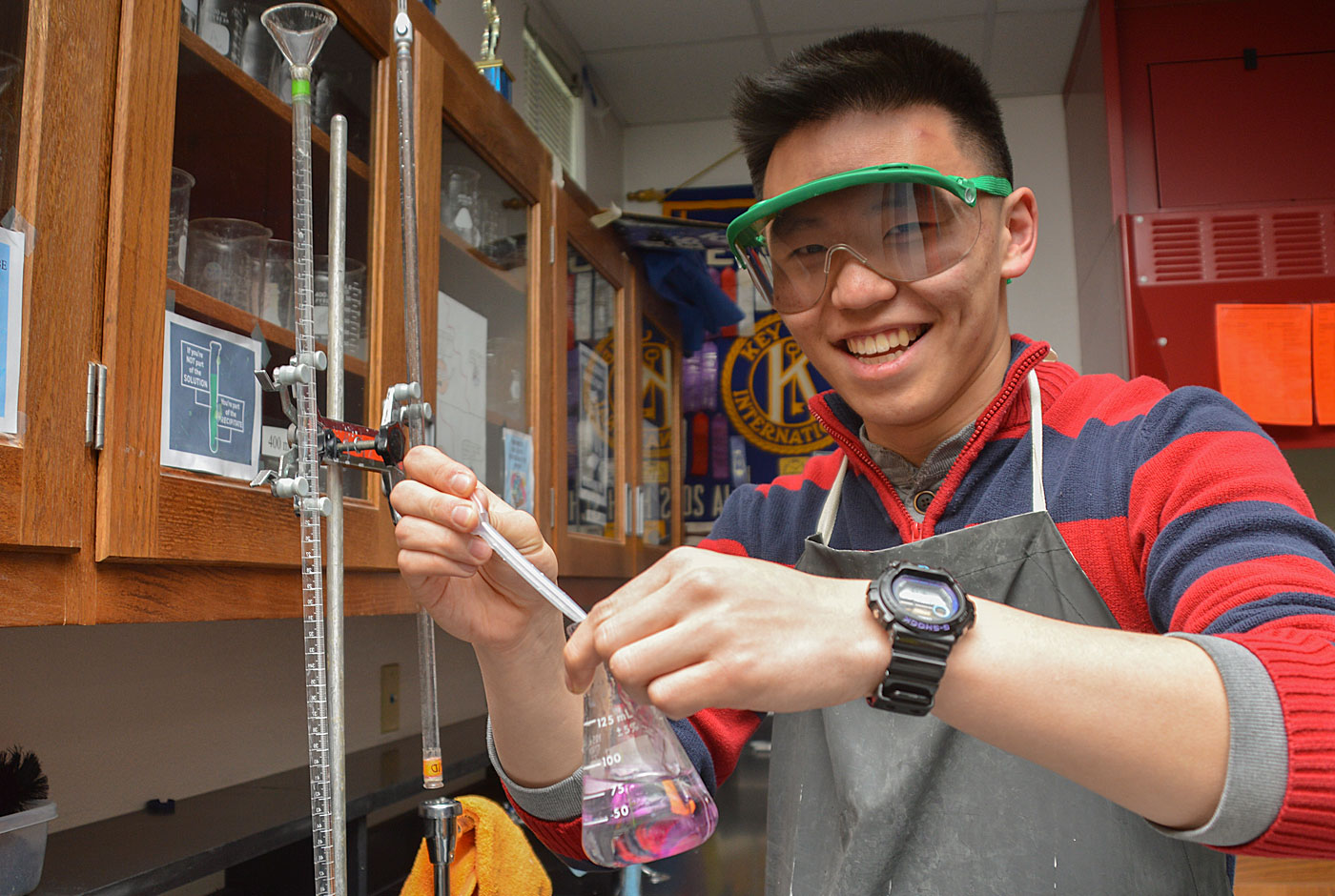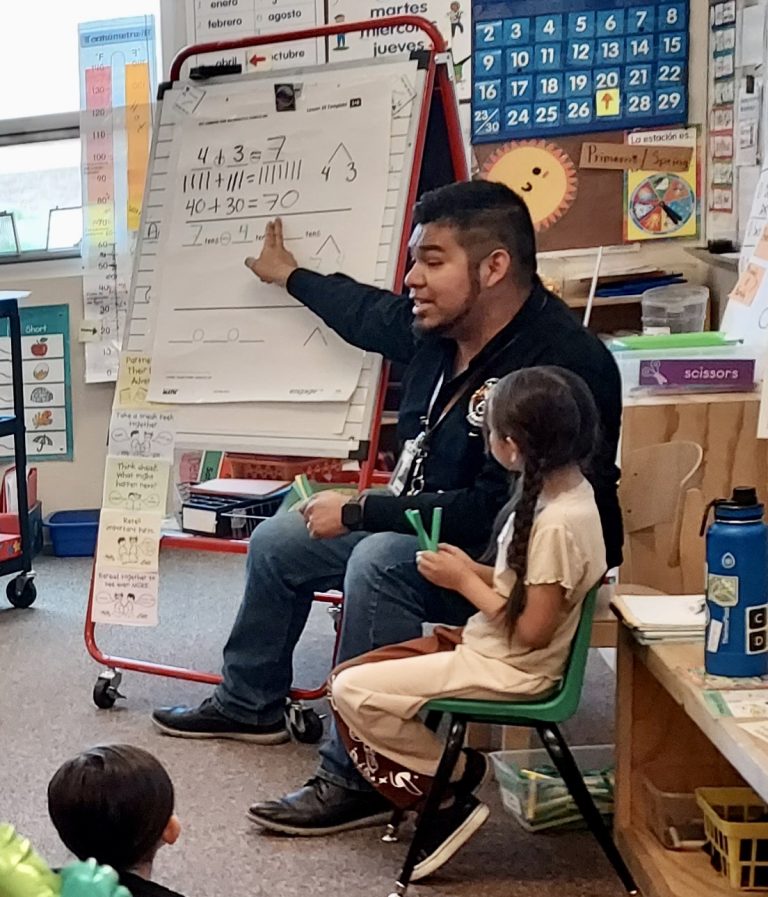Wilbur Wang, Los Alamos Employees’ Scholarship Fund award winner, is driven by curiosity. Growing up in Los Alamos meant being surrounded by exploration, open-ended questions, research, and above all science.
“This community is centered around LANL, and you can’t help but get into that energy,” he said. “I was shown that science has many uses. It’s not just a bunch of people in labs wearing coats. We have a lot of people working and pioneering in many different fields.”
His love of reading and strength in math emerged at an early age, but it was the multiple facets of science that most captured Wilbur’s attention. He frequently explored exhibits at the Bradbury Science Museum. A visit to the DiscoverE program with demonstrations and hands-on activities sparked his interest in engineering and understanding of how things work. The more he knew, the more he wanted to know.
“I’ve always been curious about what there was to learn beyond classes in school,” he said.
Curiosity Leads to Research
At age five, Wilbur began keeping fish. He started out with a small tank and four fish, feeding them and watching their colorful movement with interest. But within three weeks, they all had died.
“It seemed simple, but after doing some research I found out more about water chemistry, feeding, biological systems and cycles, plants,” he said. “It was so much more complicated. I wanted to know where I had gone wrong and learn from it.”
Synthesizing his research and proceeding with additional care, Wilbur had more success the next time around. His fish survived, and his curiosity grew. He expanded and applied this system of exploration and investigation to activities that developed his intellectual and creative interests in and out of the classroom.
Speech and debate club was just as much a social outlet as an academic activity, with friendly discussion and intense competition. Wilbur enjoys looking at the big picture, evaluating topics from opposing perspectives, forming and expressing opinions, and working to gain understanding when disagreements emerge.
“The ability to combine empathy for another person, along with reason is beneficial in anything you do,” he said wisely.
The four years Wilbur spent with the Science Bowl team practicing for and competing in the DOE-sponsored competitions were equally rewarding. The fast-paced, question-and-answer matches require a broad range of knowledge, technical problem-solving skills and calculations in subject areas of biology, chemistry, Earth and space science, physics and math. His first year, Wilbur was the only freshman on the five-member team. The last two years, he was team captain. Since 2010, LAHS has won the regional competition and competed at the national level in Washington D.C. every year except one.
Working out the team dynamic was part of the fun, finding out each person’s strengths, areas of knowledge and research interests.
“There’s thrill involved and a lot of the pressure. Everything is timed and some questions must be answered in under five seconds,” he said. “You rely on your teammates in areas you’re not strong in.”
Childhood Fascination Turns into a Career Direction
When a family member suffered a stroke, Wilbur focused his curiosity once again toward his fish tank. He became fascinated by zebrafish, learning of their ability to regenerate damaged tissue, including the specialized cells of the heart. He developed an interest in biomedical engineering.
“Maybe I could come up with a solution from regenerative capabilities of zebrafish to help not just those in my family but other families as well,” he thought. “After earning a doctorate, I hope to contribute to healthcare research through the study of regenerative medicine and artificial organ systems.”
Zebrafish research is growing in popularity, but Princeton University has one of the few programs that supports the work. That’s where Wilbur is headed this fall to major in molecular engineering with the support of a $20,000 LAESF Gold Scholarship.
As a summer intern, he is worked at Los Alamos National Laboratory in Biosecurity and Public Health Group (B-10) doing data analysis on the Athena Project with his mentor Srinivas Iyer.
He won’t be able to take his fish and 60-gallon freshwater tank to college, but Wilbur will have years of work ahead studying the amazing creatures and collaborating on groundbreaking research.



